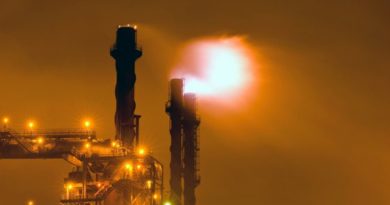Health And Safety Waste Management 🗑️ – Proper Handling And Collection Of Waste
Energy Disrupter
Health And Safety Waste Management 🗑️: Like in any other industries, waste management must follow a set of regulations to ensure the health and safety of their workers. After all, danger always lies in waste management. Read this blog to learn more about health and safety waste management.
One of the most dangerous businesses we know is waste management. Imagine handling tonnes of waste, moving them all in a rubbish truck and putting them in landfill. Unfortunately, a lot of accidents happen that cause serious injuries, and worse, even death to waste workers. As a result, the waste management industry is often portrayed in a bad light when it comes to health and safety records.
With that said, regulations have been put into place for quite some time now when it comes to waste handling and collection. This, of course, is for the safety and well-being of not just the workers, but also the waste producers and the public. Below, we will discuss more to promote awareness of health and safety.
>Download Now: Free PDF Business Owners Guide To General Waste Bin Services
A bit about Waster
Before we continue discussing health and safety waste management, let me first share Waster with you.
Waster provides you with innovative solutions for your business’s waste management and recycling needs. Moreover, we provide flexible, 30-day contracts instead of the typical lock-in contracts, which proves to be better.
Click on the blue button to learn more.
All about health and safety waste management
Accidents related to waste management often happens during the collection of waste. And, it usually involves trucks or other facilities. In addition, poor handling of chemical waste results in a major fire, contamination and even explosion incidents. All of these dangerous events will happen more than we want to if no rules and guidelines exist.
That is why we have rules and regulations instilled on the handling and collection of waste. For example, in NSW, we have the Collection of Domestic Waste Code of Practice, which aims to:
- promote the health, safety and welfare of all persons engaged in or affected by domestic waste collection,
- provide guidance on the identification of risks to be provided by those who provide a collection of domestic waste (CDW) services,
- ensure that risks to health and safety in the CDW are identified, assessed and eliminated or controlled according to the Regulation,
- promote consultation and cooperation between employers, employees, contract principals, contractors and subcontractors and/or their representatives, according to the Act, and
- protect people against risks to health and safety arising from the use of plant, equipment and substances that may affect public health and safety.
This was specifically made to ensure the health and safety of not just the waster workers, but also the waste producers. With that said, the waste producer also has the responsibility of making certain the safety and health of the contractors that collect and facilities who handle the waste.
Risk assessment
What is risk assessment? And, how is it important to health and safety waste management?
For you to understand, think about it this way: how can you ensure proper health and safety waste management practices if you do not know the risks and hazards involved in the process? That is where risk assessment comes into play.
Basically, doing a risk assessment means evaluating the risks that compromise workers’ health and safety involved in a process from workplace hazards. Obviously, this is very important to do for waste management companies. For a better understanding, risk assessment in waste management involves:
- identifying the hazards
- determining who might be harmed and in what way
- evaluating the risks
- preventing accidents from happening through control measures
- checking and recording events
- reviewing and updating the assessment
Health and safety waste management: what accidents can happen?
A lot can happen during the waste management process. By that, we mean a lot of hazards and unfortunate accidents. And, as we have mentioned above, the majority of accidents that happen involves vehicles. Putting a waste truck in reverse involves a lot of hazards, especially if done in a tight space. Without proper training and awareness, the driver might hit and crush workers or bystanders.
Additionally, another type of accident often happens – serious injuries as a result of handling heavy bins and other waste management equipment. Of course, it is a given that many would think that would be the fault of the handler (i.e., carelessness in handling the bins or equipment or unfortunate accidents like falling and slipping). But, the cause can also be due to old, broken, out of date and unusable system and incompatible bins.
[embedded content]
Aside from those, accidents caused by mishandling chemicals also happen quite often. Chemicals have their own hazards that the handlers should know. They should avoid making mistakes such as mixing or storing too close together different chemicals. That might trigger a reaction. Also, for example, keep flammable liquids away from combustible materials. Them mixing together might cause a major fire in a plant.
How to control risks
It goes without saying that waste management companies should train their waste handlers to drive a truck that can store tonnes of waste. They also must have an outlined route that they can go to so that they can avoid having to reverse the truck as much as possible. In turn, the waste producers should make sure to put their bins at an easily accessible location and assert the collection schedule at a workable time. Keep this in mind to have a properly-instilled garbage truck and waste management safety.
In addition, bins and chemicals should be handled whilst wearing and having access to safety equipment. PPE, hard hats, reflectors, gloves, goggles and more are needed.
More things you need to know about Waster
If you’re looking for other waste management and recycling bins, take a look at our waste recycling shop and find the best deals in terms of pricing and services.
Also, please call 1300 WASTER (1300 927 837), or email us at [email protected] if you have any further questions.

















